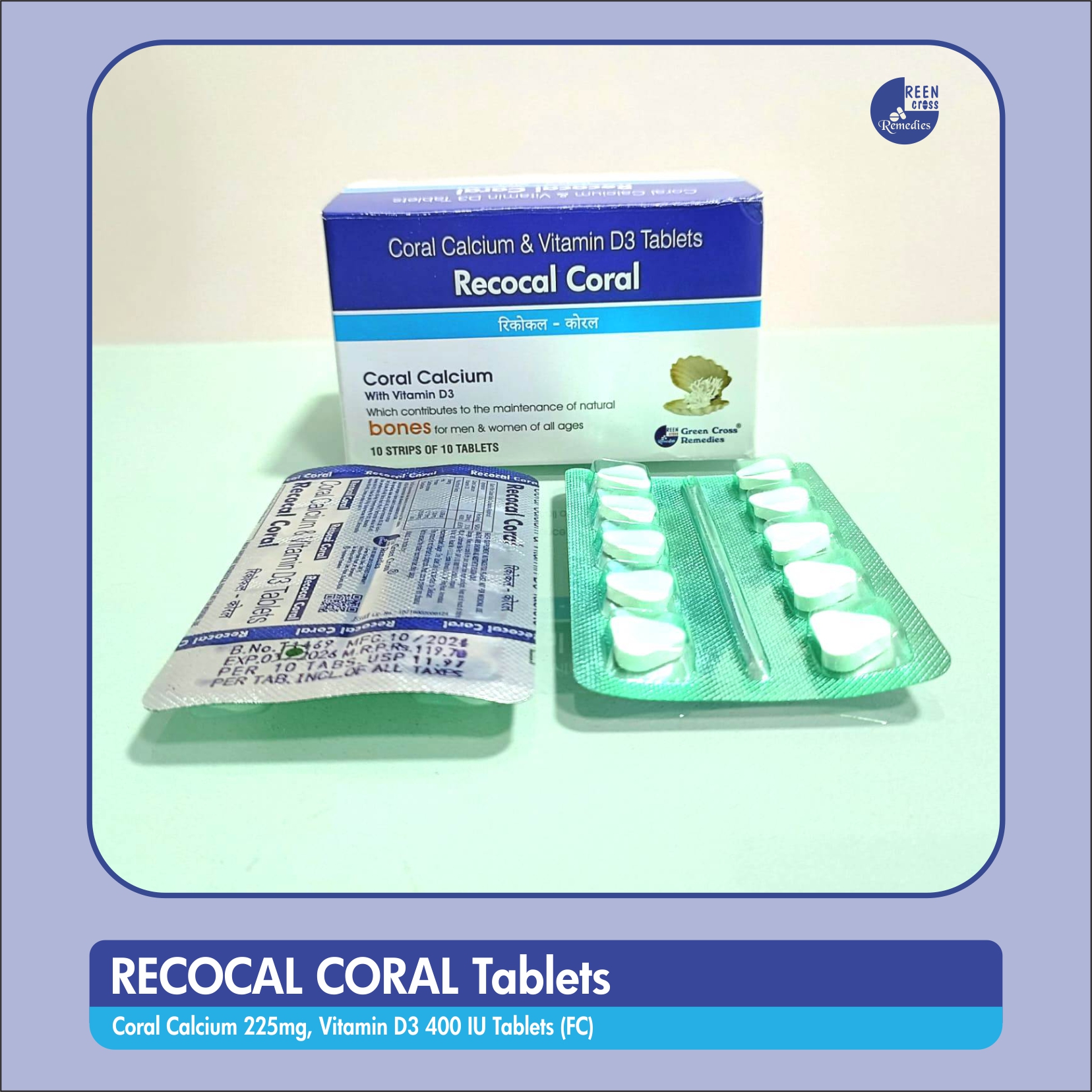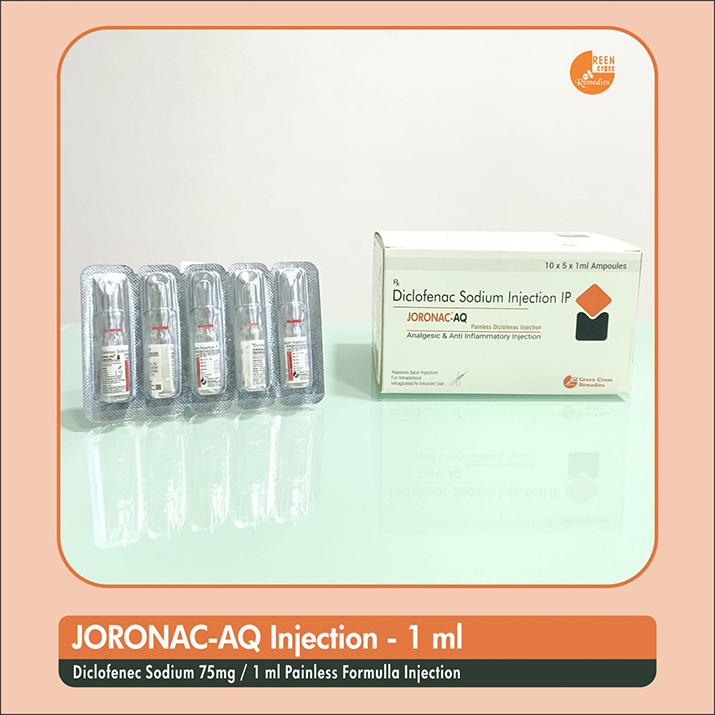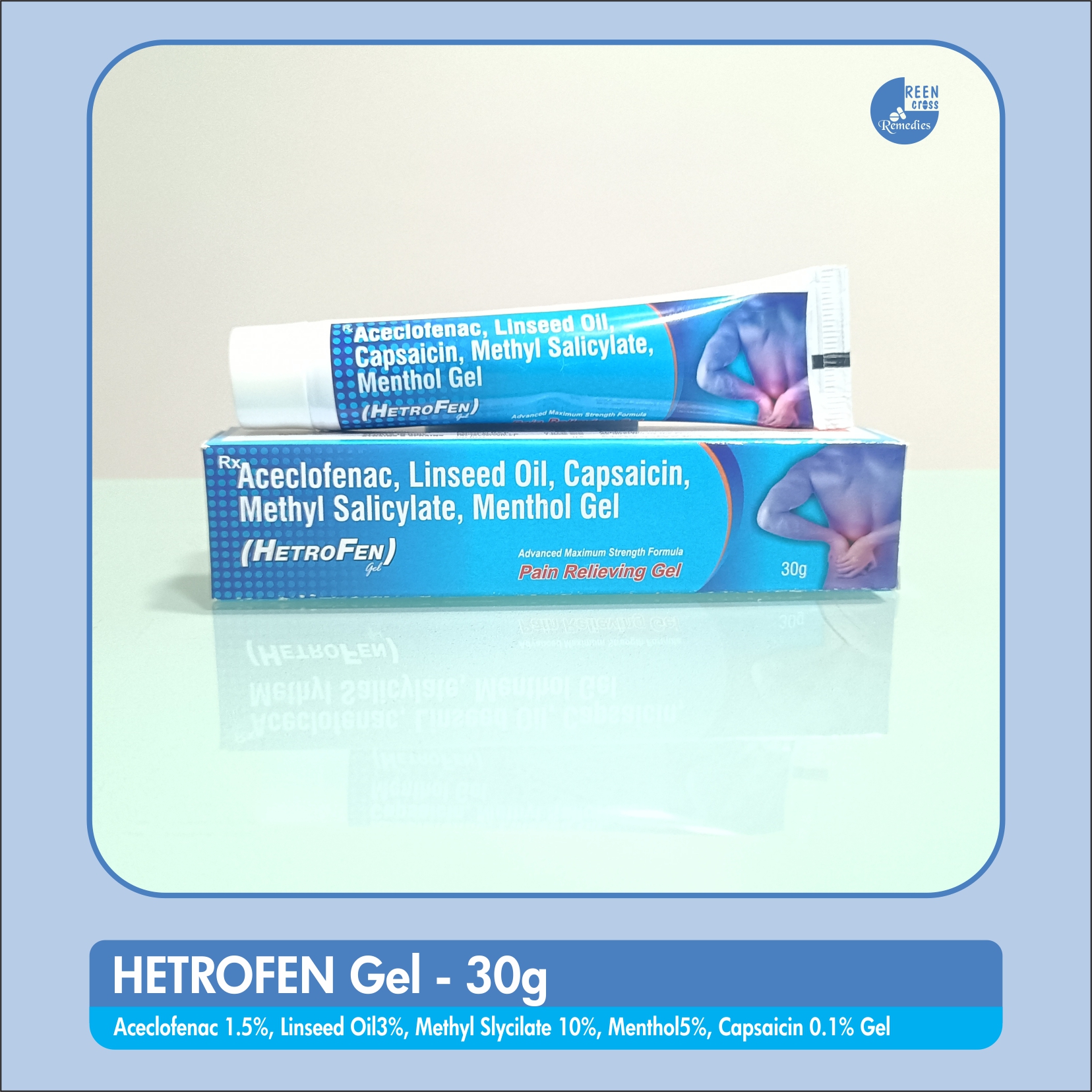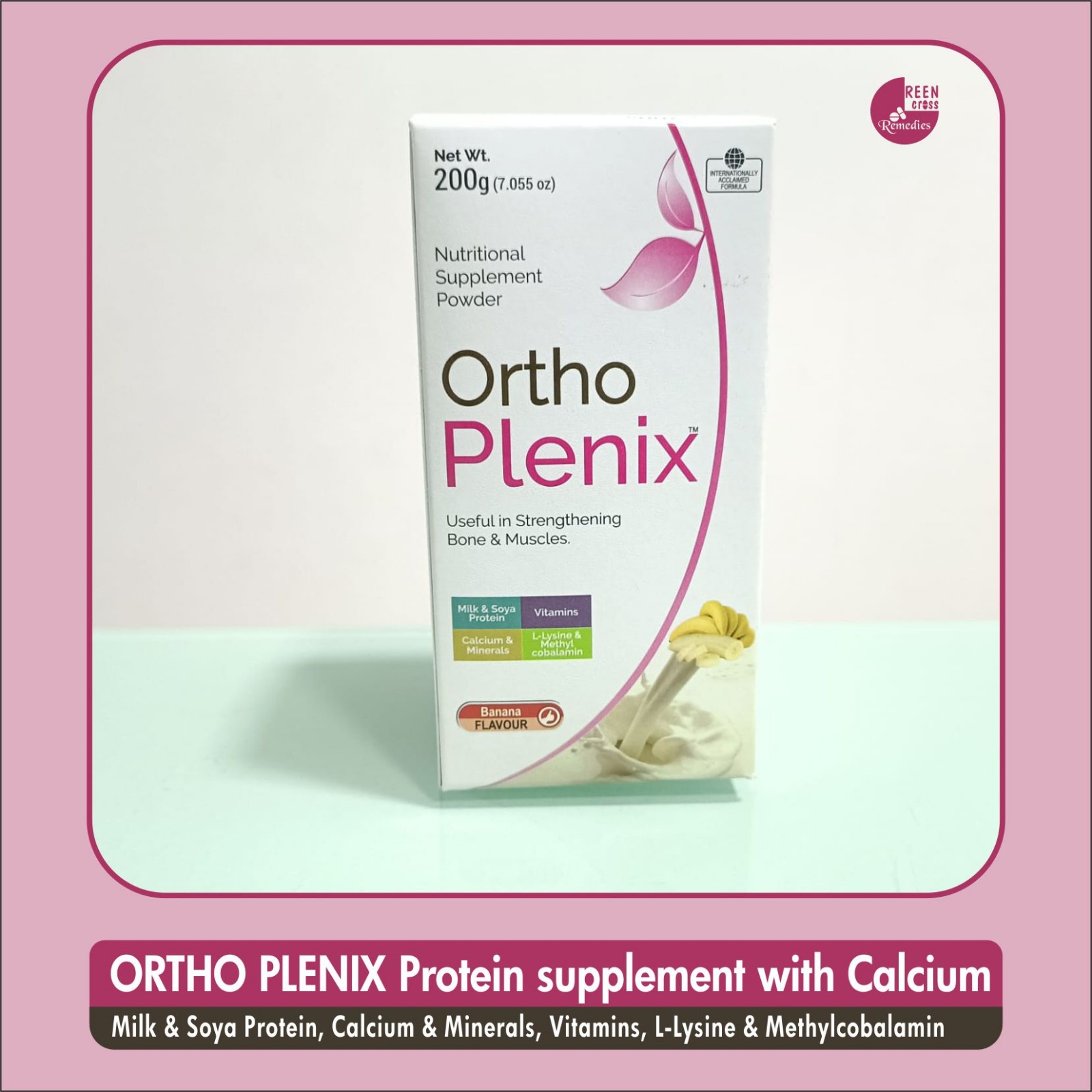RECOCAL CORAL Tablet
Coral Calcium 225 mg, Vitamin D3 400 IU Tablets Use, Indications, Side Effects, Dosage, Mechanism of Action, Price, Contra Indications, Drug Interactions.
PACK: 10 Tablet
MRP: 119.70
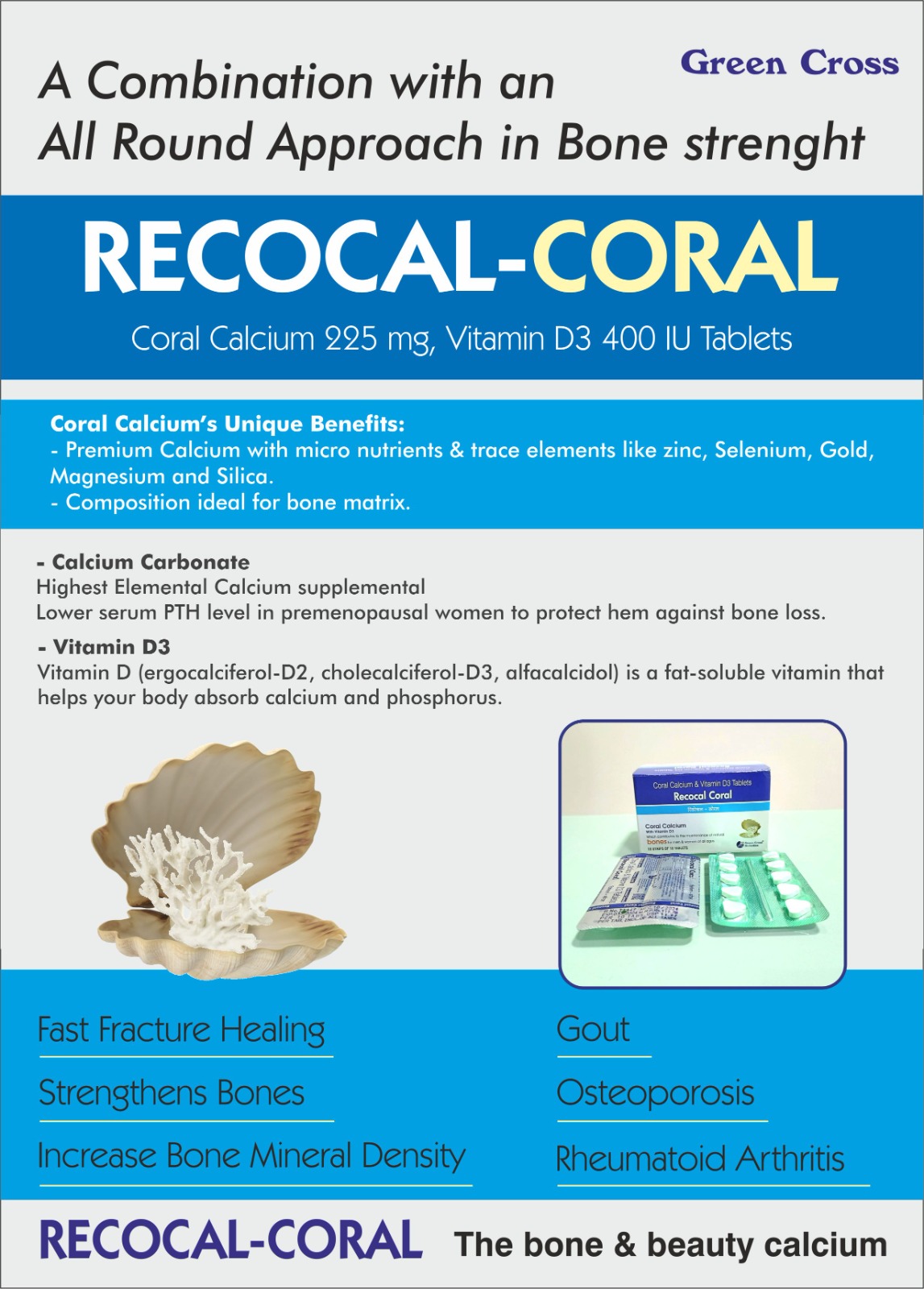
Coral Calcium 225 mg, Vitamin D3 400 IU Tablets
RECOCAL CORAL Tablet
- It helps in bone strengthening, calcium deficiency management, and osteoporosis prevention.
- Ideal for adults and elderly patients, this tablet ensures better calcium absorption and skeletal health.
Composition:
- Coral Calcium: 225 mg
- Vitamin D3: 400 IU
Uses & Indications:
✔ Treatment & prevention of calcium and Vitamin D deficiency
✔ Supports bone health in osteoporosis & osteomalacia
✔ Aids in fracture healing and dental health
✔ Beneficial for pregnant & lactating women with calcium needs
✔ Recommended for growing children & elderly for stronger bones
Mechanism of Action:
- Coral Calcium provides essential calcium for bone formation.
- Vitamin D3 improves intestinal calcium absorption and regulates bone metabolism.
Dosage:
The typical dosage is one tablet daily or as directed by a healthcare professional.
Side Effects:
- Mild constipation, nausea, or stomach upset
- Rare cases of hypercalcemia (excess calcium)
- Allergic reactions (rash, itching) in sensitive individuals
Contraindications:
- Known hypersensitivity to any ingredients in the formulation
- Avoid use in patients with hypercalcemia or related disorders.
Drug Interactions:
Recocal Coral Tablets may interact with certain medications, including those that affect calcium levels. Consult a healthcare professional before use, especially if you are taking other medications.
Disclaimer:
This information is intended for the use of Registered Medical Practitioners, Hospitals, Pharmaceutical Company Field Staff, and Pharmacies Only.
